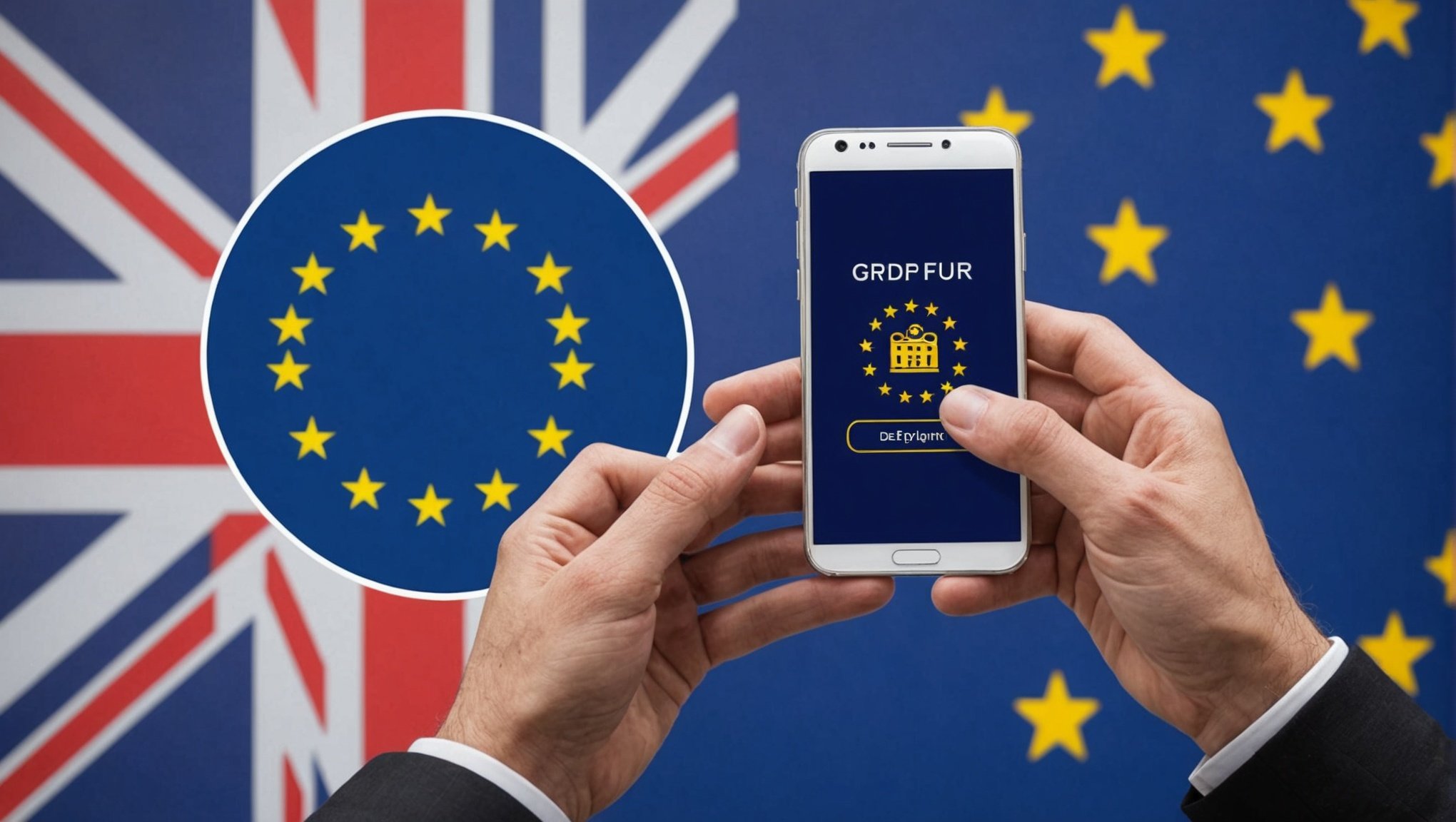UK businesses serving EU customers must comply with GDPR regulations to avoid hefty fines and maintain customer trust. Understanding the essential legal obligations is a vital step towards ensuring compliance. From data protection principles to individuals’ rights, this guide will illuminate the complexities of GDPR and offer actionable insights. Protecting sensitive data isn’t just a legal requirement; it’s a commitment to ethical business practices that foster long-term customer relationships. Explore the key elements to safeguard your business and its reputation in this digital landscape.
Understanding GDPR and Its Importance for UK Businesses
The General Data Protection Regulation (GDPR) is a comprehensive privacy law that governs how businesses handle personal data. Its primary purpose is to protect the privacy of individuals within the European Union (EU) by giving them more control over their personal information. For UK businesses, understanding and complying with GDPR is crucial, especially when dealing with EU customers.
Also read : Navigating EU ePrivacy Directive Compliance: Essential Legal Obligations for UK Businesses
The importance of GDPR cannot be overstated for businesses that serve EU customers. It ensures that personal data is processed lawfully, transparently, and securely. Non-compliance can lead to hefty fines, making it vital for businesses to adhere to these regulations. Moreover, GDPR fosters trust between businesses and their customers by demonstrating a commitment to data protection.
Post-Brexit, the impact on UK businesses remains significant. Although the UK is no longer part of the EU, it has adopted its version of GDPR, known as the UK GDPR. This means that businesses must comply with both UK and EU regulations when handling personal data from EU customers. This dual compliance requirement underscores the ongoing relevance and importance of GDPR for UK businesses in maintaining legal and ethical data practices.
Additional reading : Navigating Franchise Laws in the UK: Essential Legal Steps for Starting Your Business
Key Principles of GDPR Compliance
Understanding the GDPR principles is essential for businesses aiming to navigate the complexities of data protection. At the heart of GDPR are several core data protection principles that guide the lawful and ethical handling of personal information. These principles ensure that personal data is processed fairly, transparently, and for a specified purpose.
Lawful processing is a cornerstone of GDPR compliance. Businesses must have a valid legal basis for processing personal data, such as obtaining explicit consent from individuals, fulfilling contractual obligations, or complying with legal requirements. This requirement underscores the importance of evaluating and documenting the legal grounds for data processing activities.
Transparency and accountability are equally critical. Businesses must be clear about how they collect, use, and store personal data, providing individuals with accessible information regarding their data protection rights. This transparency builds trust and fosters a culture of accountability within organisations.
To adhere to these principles, businesses should implement robust data protection measures, such as data minimisation, ensuring data accuracy, and establishing secure data storage practices. By doing so, they not only comply with GDPR but also enhance their reputation as trustworthy custodians of personal information.
Legal Obligations for UK Businesses
Navigating the legal obligations under GDPR is essential for UK businesses. Compliance requires a thorough understanding of the regulations and their implications. At the core of GDPR compliance requirements are the rights of data subjects, which businesses must uphold to ensure lawful data processing.
Data subject rights include the right to access personal data, rectify inaccuracies, and request data erasure. These rights empower individuals to have control over their information, and businesses must establish processes to address such requests promptly and efficiently.
A crucial step in meeting GDPR compliance requirements is appointing a Data Protection Officer (DPO). The DPO plays a pivotal role in overseeing data protection strategies and ensuring adherence to GDPR. This role includes monitoring compliance, providing guidance on data protection impact assessments, and serving as a point of contact for data subjects and regulatory authorities.
To maintain compliance, businesses should regularly review and update their data protection policies, ensuring they align with GDPR’s legal obligations. By doing so, businesses not only fulfil their legal responsibilities but also build trust with their customers, showcasing their commitment to protecting personal data.
Practical Steps for GDPR Compliance
Achieving GDPR compliance requires a structured approach, beginning with a comprehensive GDPR checklist. This checklist serves as a roadmap, guiding businesses through essential compliance steps. Initially, conduct a data audit to identify the personal data your organisation collects, processes, and stores. This audit is crucial for understanding your data landscape and ensuring all information is handled in accordance with GDPR.
Next, develop and implement robust data protection strategies. These strategies should encompass data minimisation, ensuring only necessary data is collected and retained. Establish clear protocols for data accuracy and regular updates to maintain data integrity. Additionally, secure data storage solutions must be in place to protect against unauthorised access or breaches.
It is vital to appoint a Data Protection Officer (DPO) if required, who will oversee compliance efforts and act as a liaison between the organisation and regulatory bodies. Training staff on GDPR principles and data protection practices is another critical step, fostering a culture of compliance and accountability.
Lastly, regularly review and update your GDPR compliance checklist and strategies to adapt to any regulatory changes or business developments. This proactive approach ensures ongoing compliance and reinforces trust with customers.
Real-World Examples of GDPR Compliance
Exploring case studies offers valuable insights into how UK businesses effectively navigate GDPR compliance. These examples highlight both successes and lessons learned, providing practical guidance for others.
One notable case is a UK-based e-commerce company that implemented a comprehensive GDPR strategy. They conducted a thorough data audit, identifying all personal data collected and ensuring it was processed lawfully. By prioritising transparency, they gained customer trust, which significantly increased their retention rates.
In contrast, a financial institution faced challenges due to inadequate compliance measures. Their failure to appoint a Data Protection Officer led to data breaches, resulting in substantial fines. This underscores the importance of appointing a DPO and regularly updating data protection policies.
Lessons learned from these examples emphasise the necessity of proactive measures. Successful companies often adopt best practices, such as:
- Conducting regular data audits.
- Implementing robust data protection strategies.
- Training staff on GDPR principles.
By learning from these GDPR compliance examples, businesses can avoid pitfalls and enhance their data protection efforts. These real-world scenarios demonstrate that effective compliance is not only about avoiding penalties but also about building a reputation as a trustworthy and responsible organisation.
Potential Consequences of Non-Compliance
Navigating the landscape of GDPR compliance is crucial for any business operating within the EU or handling EU citizens’ data. Failure to comply with GDPR can lead to severe non-compliance penalties, including hefty GDPR fines. These fines are structured to be significant enough to act as a deterrent, with penalties reaching up to 20 million euros or 4% of the company’s annual global turnover, whichever is higher.
Legal repercussions extend beyond monetary fines. Businesses may face reputational damage, loss of customer trust, and potential legal action from affected individuals. For instance, a high-profile data breach involving a UK-based telecommunications company resulted in substantial fines and a tarnished public image. This case underscores the importance of proactive compliance measures.
Ensuring compliance is not merely about avoiding penalties but also about safeguarding the business’s integrity and customer relationships. Implementing robust data protection strategies, conducting regular audits, and appointing a Data Protection Officer are essential steps. These proactive measures help mitigate risks, ensuring that businesses remain on the right side of the law and maintain their reputation as responsible data custodians.
Common Queries About GDPR Compliance
Navigating the intricacies of GDPR can be daunting, leading to numerous FAQs on GDPR. Addressing these common GDPR questions is essential for businesses seeking clarity. One frequent query involves the scope of data processing. GDPR applies to any organisation processing personal data of EU residents, regardless of the company’s location. This means even non-EU businesses must comply if they handle such data.
Another area of confusion is data storage. Businesses often ask if they can store data outside the EU. The answer is yes, but only if the country ensures adequate data protection levels. This usually involves adhering to standard contractual clauses or other approved mechanisms.
Misconceptions also arise regarding consent. Some believe that consent is always required for data processing. However, GDPR outlines six lawful bases for processing, and consent is just one option. Understanding these bases helps businesses determine the most appropriate legal grounds for their activities.
For further clarification, businesses can access resources like the Information Commissioner’s Office (ICO) website, which offers detailed guidance. By addressing these common GDPR questions, businesses can better navigate compliance, ensuring their data practices align with regulatory requirements.
Resources and Tools for Assessing Compliance
Navigating GDPR compliance can be challenging, but numerous compliance tools and GDPR resources are available to assist businesses in assessing their adherence to regulations. These tools range from software solutions that automate data audits to platforms that manage consent and data subject requests. For instance, some assessment tools offer features like data mapping, risk assessment, and reporting, streamlining the compliance process.
GDPR resources provided by authoritative bodies, such as the Information Commissioner’s Office (ICO), offer invaluable guidance. These resources include detailed guidelines, checklists, and templates that help businesses understand and implement GDPR requirements effectively. Engaging with these resources ensures businesses remain informed about evolving regulations and best practices.
Staying updated on GDPR changes is crucial. Regularly reviewing updates from regulatory bodies helps businesses adapt to new requirements and maintain compliance. Subscribing to newsletters or joining industry forums can provide timely insights into regulatory developments.
Assessment tools and resources are essential for businesses to not only achieve compliance but also to demonstrate their commitment to data protection. By leveraging these tools, organisations can enhance their data management practices, safeguard personal information, and build trust with their customers.











